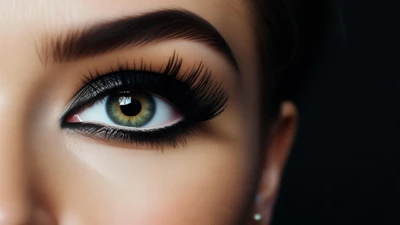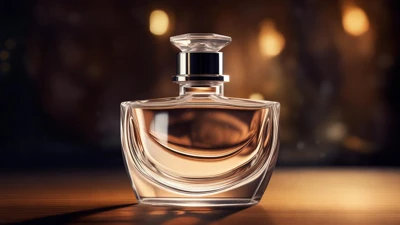
I. Micellar Water is Known for Being Gentle. Is It Better Than Cleansing Oils for Makeup Removal?
In 2023, the global skincare market was estimated at over $180 billion. Products claiming to combine strength with gentleness have flooded the market. When it comes to makeup removal, micellar water and cleansing oils are the top picks. The appeal of micellar water lies in its 'no-rinse and gentle' formula. Cleansing oils, however, focus on dissolving long-wearing cosmetics through the mechanism of 'like dissolves like.' The question is whether micellar water beats cleansing oils in terms of being gentle. This essay reviews scientific data, includes user experiences, and weighs environmental factors to respond.
II. Grasping the Makeup and Functionality
A. Structure and Function of Micellar Water
Micellar water is made up of micelles, which are tiny oil molecules suspended in water and stabilized by surfactants. Micelles attract dirt, oil, and makeup. Then they enclose them, making removal a breeze. Well-known brands such as Bioderma Sensibio and Garnier SkinActive use ingredients like poloxamer 184 or coco-glucoside, which are gentle non-ionic surfactants. A key finding from a 2018 study in the Journal of Cosmetic Dermatology is that micellar waters should have pH levels set at approximately 5.5–6. Products with a pH of 5 matched the skin's natural acidity and were found to be less irritating than foaming cleansers.
B. How Cleansing Oils Work and Their Chemistry
DHC Deep Cleansing Oil is formulated with plant-based oils. Kiehl's Midnight Recovery Botanical Cleansing Oil, on the other hand, may contain synthetic oils. To dissolve lipid-soluble impurities, try using olive, coconut, or mineral oil. Through the emulsification of oil and water, makeup can be lifted away without stripping the skin of its natural moisture barrier. Oils with comedogenic properties can clog pores. Acne-prone users should use them cautiously to avoid skin issues.
C. Comparative Analysis
These products aim to remove makeup. Still, their mechanisms are not identical. Micellar water uses a water-based formula which does not leave residue. If you wear heavy makeup, you may have to use more of it. If you use cleansing oils to remove waterproof mascara, make sure to wash your face thoroughly. In 2021, Dermatology Times found that oils with PEG emulsifiers can harm the skin barrier when overused. Products like micellar water with minimal ingredients tend to be less harmful.
III. Essential Criteria for Rating Gentleness
A. The Connection Between pH Levels and Skin Barrier Strength
The natural pH of the skin can vary, but it usually starts at 4.5 to 6.5. Micellar waters frequently fall within this pH range, as demonstrated by La Roche-Posay Toleriane Cleanser (pH 5.5). The pH can be altered by cleansing oils during emulsification. Products like Tatcha Pure One Step Camellia Oil are designed to avoid this issue. The findings of a 2020 study in Skin Pharmacology and Physiology revealed that alkaline cleansers cause higher transepidermal water loss (TEWL). The study also proposed that micellar water's acidic pH could better protect skin hydration.
B. Understanding Surfactants and Their Ability to Cause Irritation
Non-ionic surfactants play an essential role in how micellar waters work. If you want a cleanser that's less irritating, polysorbate 20 is better than sulfates. However, some formulations include alcohol. Simple Cleansing Micellar Water might lead to dryness for those with sensitive skin. Cleansing oils are free from surfactants yet can include fragrances or essential oils, which are known to trigger allergies. According to the AAD, more than one in five cases of contact dermatitis result from using fragranced skincare products.
C. Clinical Evidence
A 2019 double-blind study published in Clinical, Cosmetic, and Investigational Dermatology compared micellar water with cleansing oils. The study involved 100 participants who had sensitive skin. According to a four-week study, 68% had reduced redness with micellar water. On the other hand, 32% liked oils more for their moisturizing properties. Notably, users with rosacea found oils to be more tolerable when they were formulated without irritants such as sodium lauryl sulfate (SLS).
IV. Skin Type Considerations
A. Oily/Acne-Prone Skin
People with oily skin often like micellar water because of its lightweight formula. According to a study, using CeraVe Hydrating Micellar Water can reduce sebum levels by 40%. However, dermatologist Dr. Whitney Bowe warns that micellar waters with alcohol might cause excessive dryness, which can lead to increased oil production. Oils for cleansing which are non-comedogenic. Jojoba is known to balance moisture levels and avoid clogged pores.
B. Dry/Mature Skin
Lipid replenishment is a benefit of using cleansing oils with squalane or argan oil. A study conducted in 2022 and published in the Journal of Aging Research revealed that Shu Uemura Ultime8 Sublime Beauty Oil can increase skin elasticity by 18% in eight weeks. Ceramides are not a natural component of micellar waters. They must be added to include them. People with dry skin might notice tightness after applying Bioderma Pigmentbio H2O.
C. Sensitive Skin
For people with eczema or psoriasis, micellar water with fewer ingredients lowers the risk of allergies. Sensitive users still showed reactions to PEG-free micellar formulas, as noted by the British Journal of Dermatology, with 12% being affected. Products like the Krave Beauty Matcha Hemp Hydrating Cleanser are oil cleansers with calming properties. You can try matcha or hemp seed oil for a soothing effect.
V. What Users Prefer is Often Shaped by Culture
A. Convenience and Accessibility
People in urban areas are drawn to micellar water because it saves time with its no-rinse application and suits their fast-paced lives. The Mintel report in 2023 showed that 58% of people in the USA want skincare routines to be quick. East Asia's double-cleansing trend, which starts with oil and ends with foam, has driven a 27% growth in oil cleanser sales in South Korea since 2020.
B. Case Studies
Case 1: Sarah, a 28-year-old nurse in New York, found Neutrogena Oil-Free Eye Makeup Remover stinging. She then moved to micellar water as an alternative. It's praised for delivering quick and clean results, but she remarks that three cotton pads are essential for taking off waterproof eyeliner.
Case 2: Priya, a 35-year-old esthetician based in Mumbai, recommends cleansing oils. She says her clients with persistent dryness find better results using oils like Kama Ayurveda Bringadi Oil. It's mild and deeply nourishing.
C. Personal Anecdote
With combination skin, I find myself choosing one product and then the other. While micellar water is great for taking off sunscreen applied during the day, it doesn't work as well on long-lasting foundation. Cleansing oils work wonders on heavy makeup. Just be sure to wash them off thoroughly to keep your skin from feeling greasy.
VI. We Need to Consider the Environment. We Also Need to Think About the Economy
A. Sustainability
The use of single-use plastic packaging for micellar waters plays a role in the generation of 120 billion units of cosmetic waste per year. Many green-minded brands, like Garnier, now offer refill solutions for their products. Although cleansing oils in glass bottles have a minimal environmental impact, the collection of their ingredients can consume considerable resources, e.g., palm oil.
B. Cost-Effectiveness
Micellar waters from drugstores are budget-friendly compared to luxury oils. The reason oils last longer—1–2 months instead of 3–4 weeks like micellar water—is that they contain concentrated formulas.
VII. A Word From Beautyvs
For people with sensitive skin, oily skin, or limited time, micellar water is a better option than cleansing oils. It is gentler, maintains a good pH balance, and contains fewer surfactants. For dry or mature skin, oils are unmatched in providing lipid replenishment. The decision finally depends on personal skin requirements, environmental considerations, and cultural habits. New trends in skincare suggest that hybrid products will provide the most effective results from each category.














